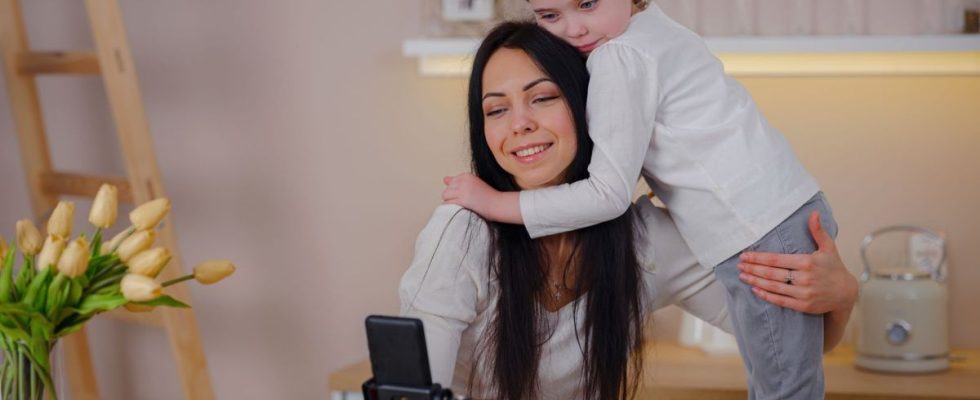Published on
Updated
Reading 4 min.
in collaboration with
Justine Atlan (General Director of the E-enfance association)
Users of the social network TikTok denounce certain videos from influencers, who allegedly feature their children in videos in a roundabout way, to increase their visibility. Doctissimo interviewed Justine Atlan, general director of the E-enfance association, which fights against these practices.
Influencers are the first people to show their children on social networks. If the practice must be regulated because the exposure of a child is never harmless, it becomes almost reprehensible when the parent in question shows their child in videos that are apparently harmless, but only in appearance.
Content that seems cute, but can be interpreted differently
On TikTok, the influencer mainly targeted by these remarks is Jacquelyn, who shows her 5-year-old daughter, Wren. The mother has 17 million subscribers on the platform, but it seems that to arrive at such a figure, she voluntarily featured her daughter in videos that seem harmless at first glance, but that a misplaced mind could see with another eye.
Thus, a young woman, Kristynnsss, publishes a video on the social network to denounce these practices. She points out in particular the fact that the most viewed videos of the little girl are those where she is in panties, a swimsuit, sucking a candy or eating a hot dog.
Kristynnsss therefore legitimately questions the fact that the mother could voluntarily put her daughter in this type of situation, in order to increase the views and likes of her videos and therefore earn more money. “I decided to go look at the comments under these kinds of videos. There are adult men there. I then went to see the profile of one of them and then I clicked in the section of videos that he “liked”: there are ONLY videos with children” she says indignantly.
The mother responded to these accusations by asking people who did not agree with her videos to “block” her.
A right to the image of children which does not belong entirely to the parents
In the same vein, there are videos of children saying insults, published by their parents. The children are filmed to complete a challenge: for one minute, they can say all the insults they want, without risking being scolded. So many images that can potentially feed child pornography networks, without parents being aware of it. In fact, half of the photos circulating on child pornography networks are photos taken by parents and shared publicly on their social networks.
To better understand these abuses, Doctissimo interviewed Justine Atlan, general director of the E-enfance association, which fights against these practices. It firstly reminds us that a child remains an individual in his own right, who does not belong to his parents. “Parents have a responsibility for education and protection towards their child, they must seek their child’s best interests in all situations. she explains.
“But that does not mean that they can use it as they see fit, particularly on the issue of image rights.” Throughout the child’s minority, a child’s legal guardian must do what is best for the child. “In the case of this mother who exposes her 5-year-old daughter, the child does not know what she is doing and the mother does not seem to be looking for what is best for her, indeed” concedes Justine Atlan.
A law adopted to protect children from these abuses
Last February, the National Assembly definitively adopted a bill aimed at better protecting the image rights of children in the face of the excesses of certain parents, who expose them on social networks. This law makes it possible to protect “private life” by introducing this notion into the definition of parental authority in the Civil Code. “This law which has just been promulgated allows a judge to seize the right to the image of a child, in the event that it is not respected or also allows him to intervene in the event of separation and disagreement of the two parents on the issue says Justine Atlan.
Educate children to protect themselves and remind parents of common sense rules
For Justine Atlan, the question of exposure on the Internet is a real educational problem, which parents must address. “Lchildren can from the age of 13, have an account on social networks. Parents must therefore educate them to respect their image, but also that of others and explain to them that an image circulates quickly and that on the Internet, nothing is erased..
Finally, she also urges parents to use common sense. “For parents of younger children, who would tend to expose their children significantly on social networks, they must also be reminded not to publish photos of their children in swimsuits, in the bath, in panties … Because any photo, which will be innocuous for the majority of people, can constitute a source of child pornography images for certain perverse people, unfortunately.”
